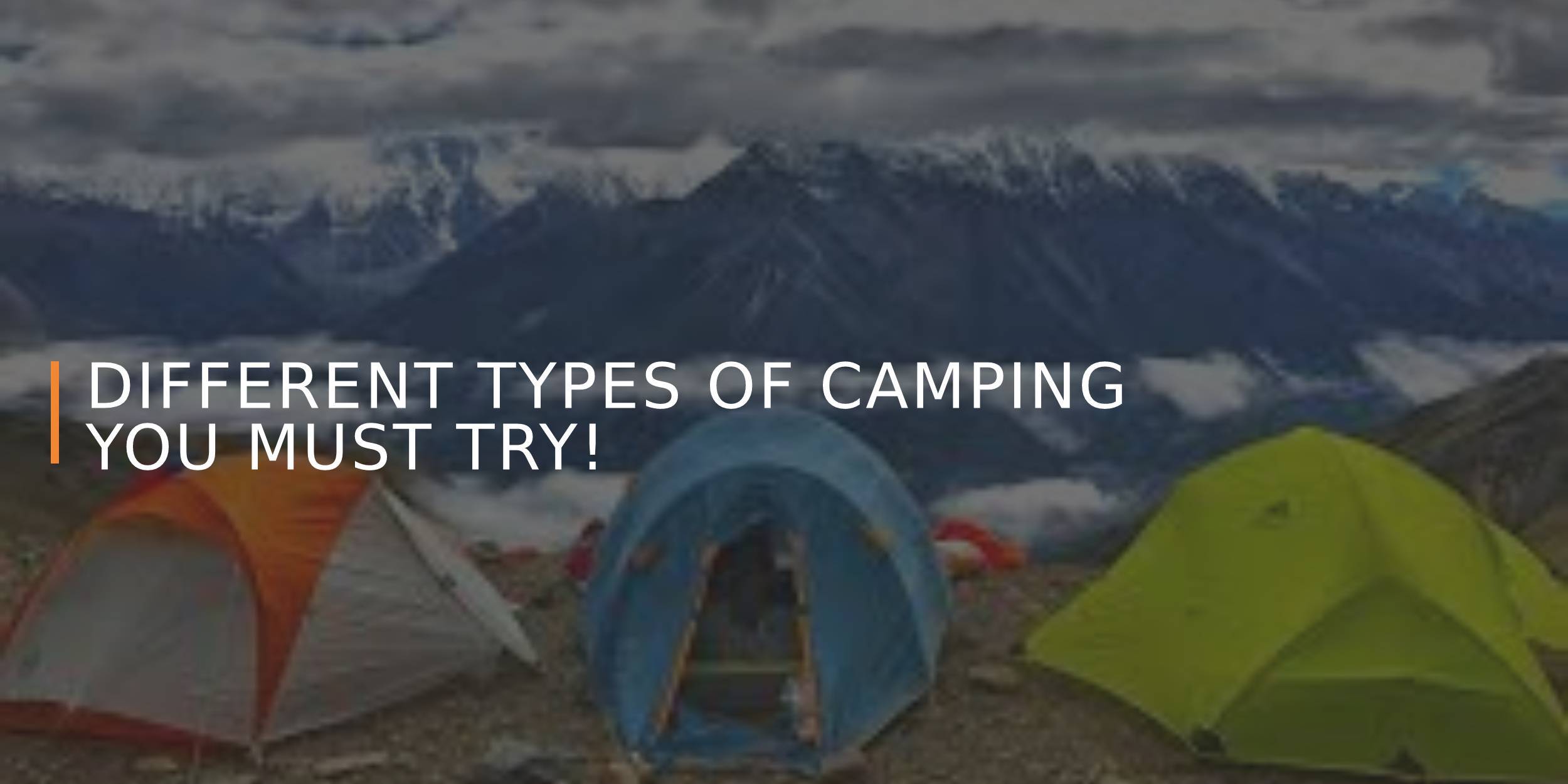Different Types of Camping You Need to Try!
When you think of camping, you probably imagine sleeping in a tent in the middle of the forest with a nice crackling fire.
While there is nothing wrong with your average tent camping, you’ll be missing out on a world of adventure if you don’t consider some of the other ways that you can enjoy the great outdoors.
These camping styles will test your outdoor skills and give you a trip that few have ever experienced!
Canoe Camping
Canoe camping doesn’t mean sleeping in a canoe. Instead, canoe camping involves packing all your equipment into a canoe and paddling up or down a river.
When it’s time to make camp, you beach your canoes along the riverbank and setup camp for the night. The next day, you break camp and continue your journey until you arrive at your destination. It’s awesome.
Paddling a canoe is a fun way to travel. It’s also great exercise. However, if you’re a novice canoer, the river can be hazardous. If you’ve never been on the river before, it’s best to take a river guide with you on your trip.
Your guide will not only help you steer clear of dangerous rapids, but they will also be familiar with the best places to make camp. With the right guide, you’ll be sure to have a fun-filled and rewarding canoe camping trip.
Survival Camping
Perhaps one of the most extreme forms of camping, survival camping involves carrying as little gear as possible and surviving off the land.
Survival camping is a test of your skills, wits, and courage. This style of camping requires a lot of general camping experience, craftsmanship, and research. You’ll need to learn how to build your tools from what you can find in the wild.
For example, instead of taking a tent, you might pile together branches and leaves to make a lean-to shelter. Instead of packing food, you might plan to set up snares for fish and small animals. You may even build your own fishing pole.
Each survival trip is going to be different because each location will have its own unique challenges and survival secrets. It's usually a good idea to speak to a local expert if you’re planning a survival trip in an unfamiliar area.
If you’ve never done this style before, it’s best to start small. Start with short trips in mild climates. Bring along experienced friends who can teach you a few tips and tricks.
Winter Camping
Most people hate being cold, so the idea of camping in the snow may not seem appealing at first. However, there is an unparalleled beauty to exploring wild and wintry landscapes.
Winter camping is a great way to enjoy snowshoeing, cross-country skiing, ice-climbing, or sledding in the backcountry.
If you prepare properly, you may not experience the cold. The most important part of winter camping is to wear the proper layers of clothing. You can use these layers to regulate your body temperature and keep yourself from getting too cold or too hot.
Make sure to pack lots of high-calorie foods. Your body is going to be burning a lot more calories than normal, so you’ll need the extra energy.
Be sure to speak with a winter camping specialist before you go so you can learn how to stay safe on your journey.
Reenactment Camping
Few people think about participating in a reenactment camp, but it is an extremely fun activity.
Re-enactment camps allow you to take on the persona of a historical individual who took part in an important event. For example, there are many American Civil War reenactments across the country every year.
You’ll have the opportunity to dress, eat, work, and act like they did. Re-enactment camping is a combination of history, theatre, and outdoor adventure all rolled into one.
The most popular reenactment camps will have themes revolving around important historical battles, but you’ll also find some re-enact non-violent encounters like traveling expeditions or trading rendezvous.
There are many other types of camping you can try that are not included in this article. Hopefully, this short list has helped to spark your imagination and get you excited to go on some new adventures.
Just make sure to always prepare with safety in mind. If you’re trying something new, be sure to take an expert along with you.
